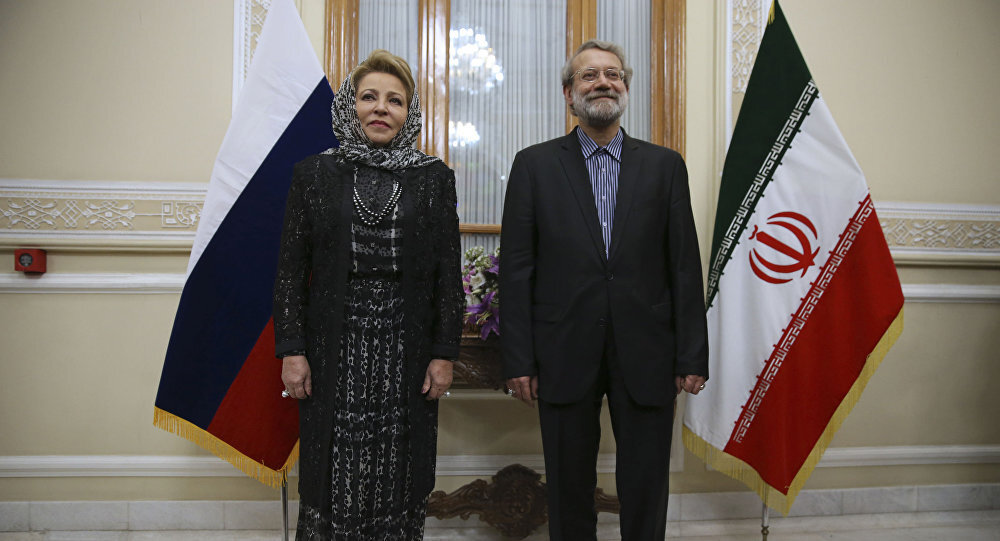Russia: Revocation of Iran nuclear deal to fuel regional tensions

TEHRAN – Valentina Ivanovna Matviyenko, the chairwoman of Russia’s Federation Council, said on Monday that destruction of the 2015 nuclear deal will intensify security tensions in the region.
Matviyenko made the remarks in a meeting with Iranian Parliament Speaker Ali Larijani on the margins of the 141st Assembly of Inter-Parliamentary Union (IPU) in Belgrade, Serbia.
Tensions mounted between Tehran and Washington when President Donald Trump pulled the United States out of the 2015 nuclear deal with Iran in May 2018 and re-imposed harsh sanctions against the Islamic Republic in defiance of global criticism.
Matviyenko said, “There is no reason to withdraw from the nuclear deal because Iran has fulfilled the entire obligations under the deal well. Tehran’s measures have also been verified by the International Atomic Energy Agency’s experts who are in Iran on verification mission.”
“Destruction of the JCPOA will intensify tensions in the region. Russia firmly opposes killing of the nuclear deal with Iran,” she said, according to the Persian website of Sputnik.
Matviyenko further said Russian President Vladimir Putin, in his phone calls, has invited the U.S. president and the European leaders to help maintain nuclear deal with Iran and solve the differences via dialogue.
On May 8, 2019, exactly one year after the U.S. withdrawal from the nuclear deal, Iran’s Supreme National Security Council (SNSC) decided to reduce Tehran’s nuclear commitments based on paragraph 36 of the JCPOA and set a deadline for Europeans to remedy breaches.
President Hassan Rouhani has said the government was moving on the right path by reducing its nuclear commitments, stressing that Tehran could not be patient while the other parties failed to stick to their commitments.
The JCPOA was signed between Iran and six world states — namely the U.S., Germany, France, Britain, Russia, and China — in 2015. However, Washington’s exit from the deal in May 2018 has put the future of the historic deal in limbo.
Tehran remained fully compliant with the JCPOA even one year after the U.S. pulled out of the deal, waiting for the co-signatories to fulfill their end of the bargain by offsetting the impacts of Washington’s bans on the Iranian economy. As the European parties failed to do so, Tehran moved in May to retaliate against Washington’s exit and began to partially suspending its JCPOA commitments in 60-day stages under paragraph 36 of the deal.
Paragraph 36 has provided a mechanism to resolve disputes and allows one side, under certain circumstances, to stop complying with the deal if the other side is out of compliance.
Iran has so far rowed back on its nuclear commitments in three stages.
The Islamic Republic has already increased its enriched uranium stockpile beyond the 300-kilogram cap set by the agreement, began enriching uranium to purity rates beyond the limit of 3.67 percent, and also removed ban on its nuclear research and development.
MJ/PA
Leave a Comment